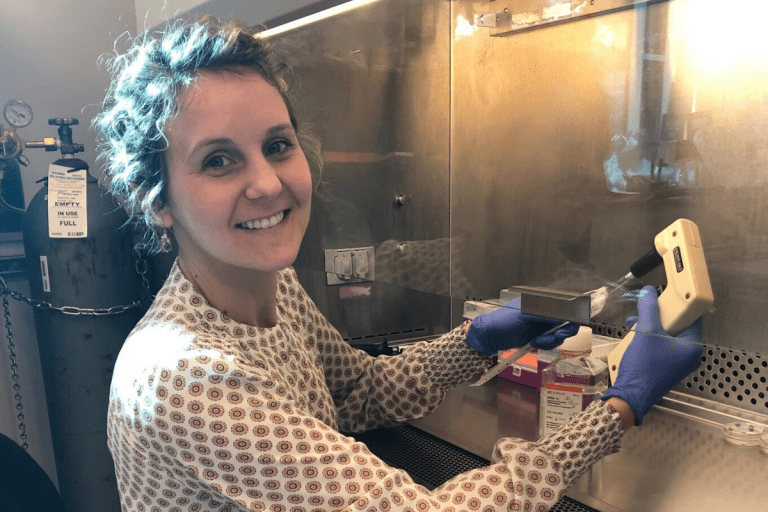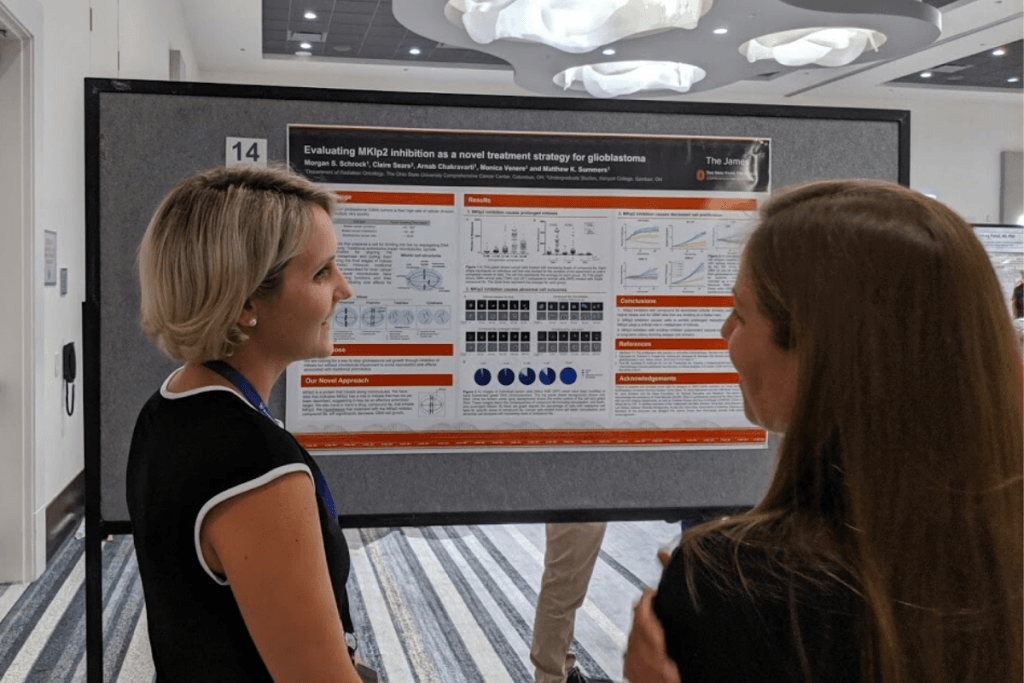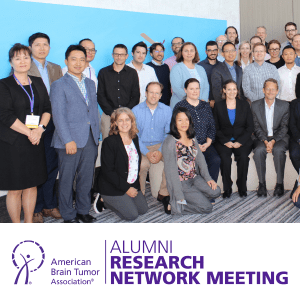Morgan Schrock, DVM, PhD’s first career was a veterinarian, but she later found her second career in brain tumor research. As a postdoctoral scientist at The Ohio State University Department of Radiation Oncology, Morgan is now using her veterinary background to advance the understanding of brain tumors in humans by improving our knowledge of brain tumors in pet dogs.
“The metabolism of a dog is closer to humans, than a mouse. So, I’m working on an emerging field of research called comparative oncology, where we’re trying to understand cancers in other animals, like dogs, so we can apply more accurate information to humans,” said Morgan.
At the very start of her brain tumor research career, Morgan became attracted to a project that focused on new therapies for glioblastoma (GBM) patients.
“I gravitated towards this type of research because, often, glioblastoma patients are enduring one of the most aggressive cancers that we know,” said Morgan. “And there’s a lot of work that still needs to be done for these patients, because it is such a formidable and prolific disease.”
I gravitated towards brain tumor research because, often, glioblastoma patients are enduring one of the most aggressive cancers that we know.

In 2018, Morgan was a recipient of the ABTA Basic Research Fellowship for her research project, “A Novel Antimitotic in Glioblastoma.” Receiving a two-year $100,000 grant supported a portion of her research project focused on the mitotic kinesin-like protein 2 (MKlp2), a protein that causes GBM tumor cells to divide and multiply quickly. Morgan aims to uncover the potential therapeutic effects of blocking the protein when combined with standard GBM therapies. A second goal of the project is to learn more about how MKlp2 behaves in naturally-occurring canine cancers to determine whether treating brain tumors in dogs can serve as a preclinical study to testing MKlp2 inhibitors in GBM human patients.
“Receiving the ABTA funding allowed us to do some expensive experiments we might not have been able to do otherwise.”
As she progressed in her research, she was able to receive scientific feedback on the experiments she proposed and the positive comments regarding the canine work in comparative oncology. It encouraged her to move forward in that direction.
“Every grant builds on another, so receiving funding from the ABTA allowed me to generate data, which then served as preliminary data in my application for two intramural grants [for additional research],” said Morgan. “The money from these grants will allow me to finish the experiments I originally proposed and conduct additional experiments to answer new questions that have arisen since submitting my original post-doctoral fellowship proposal to the ABTA.”
Since receiving her ABTA grant two years ago, Morgan has expanded her research and gained preliminary data that suggested inhibiting the Mklp2 protein with a drug would stop the growth of GBM cells. Morgan has been working with more potent versions of the drug that continue to show that the drug is effective in GBM cells in vitro (cultured cells in an incubator). Morgan’s work in the Summers lab is now moving on to testing the drug in more advanced models. Perhaps the most exciting advancement is that Morgan and her colleagues have identified a previously unknown function for Mklp2 that explain why it might be a good drug target for glioblastoma patients.
“Understanding the biology of Mklp2 is so important, because it will allow us to determine which patients should receive the drug, and which shouldn’t – avoiding potential adverse reactions in patients who wouldn’t have received a therapeutic benefit anyway.”

Beyond Brain Tumor Breakthroughs
The ABTA is dedicated to funding research that has the potential to change the lives of people impacted by brain tumors and “seed the field” with promising up-and-coming researchers in the brain tumor landscape. To date, the ABTA has awarded nearly $33 million in brain tumor research for adults and children.
Learn more about the ABTA Research program and available grant opportunities.



















